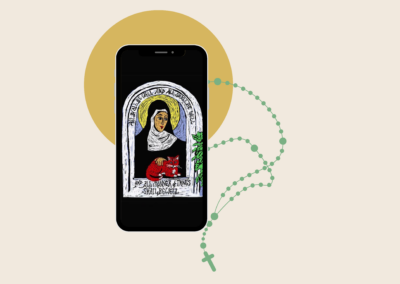Over 9 weeks, we’ll be exploring science’s greatest mystery—human consciousness.
Humanity is set apart from the rest of creation by our mind’s ability for introspection, private thought, exercising our will, and self-awareness. The study of consciousness has been controversial, and scientists, philosophers, and theologians have invested countless hours attempting to unravel the mystery around how consciousness works and where it resides.
Will these human capacities ever be explained by purely naturalistic means, or does this uniqueness point toward a Creator who made us in his image and designed the universe for us to study and comprehend?
Join the conversation and hear from experts as they share their ideas and thoughts on a topic at the cutting edge of science and Christian belief.
When: Thursday 13th Apr 2023 @ 8:30 pm NZT– Thursday 8th Jun 2023 @ 9:30 pm
Where: Online
The ISCAST–NZCIS Conversations are back for 2023! Join us for 9 weekly online conversations from the 13th of April to the 8th of June. In this series, we’ll be deep-diving into the world of consciousness, knowledge, and the self. What does the human capacity for self-awareness mean for Christianity, and how might Christians think about these topics?
This event is FREE for student members of ISCAST or NZCIS. Become an ISCAST member or an NZCIS member today.
We’re offering our first Conversation with Dr Joanna Leidenhag for free! Simply join the ISCAST mailing list for the link.
DETAILS:
- Thursday nights from 13 April until 8 June
- Starts 8:30 p.m. NZST
- Presentation: 30 minutes
- Discussion & Questions: 30 minutes +
PRICES:
This one-off fee will cover the cost of attending all the conversations. Not sure if you want to commit? Attend the first Conversation for free! Just sign up to the ISCAST mailing list for the link.
- $30 for ISCAST and NZCIS members
- $60 for non-members
- $10 for student/concession non-members
- FREE for student/concession members of ISCAST or NZCIS
About the ISCAST–NZCIS Conversations
Since 2020, ISCAST and New Zealand Christians in Science have run the Conversations series, with an aim to promote a dialogue between the sciences and the Christian faith. Experts are invited to speak on their topic, which is then followed by a Q&A and discussion.
“The result of the Conversations for me is that theology and science together now truly inform my worship—no doubts, no niggles, no uncertainty.”
“New subjects and old ones, presented brilliantly.”
Speakers & Topics
Minding Creation: What are the limits of Consciousness?
13 April – Joanna Leidenhag
In this NZCIS-ISCAST Conversation we explore the theme of consciousness with Dr Joanna Leidenhag. Dr Leidenhag will first examine the role that debates about consciousness play in science-and-religion dialogue. Second, she will argue for why both scientists and Christian theologians should adopt panpsychism, the view that consciousness is a fundamental feature of the universe and not unique to humans.
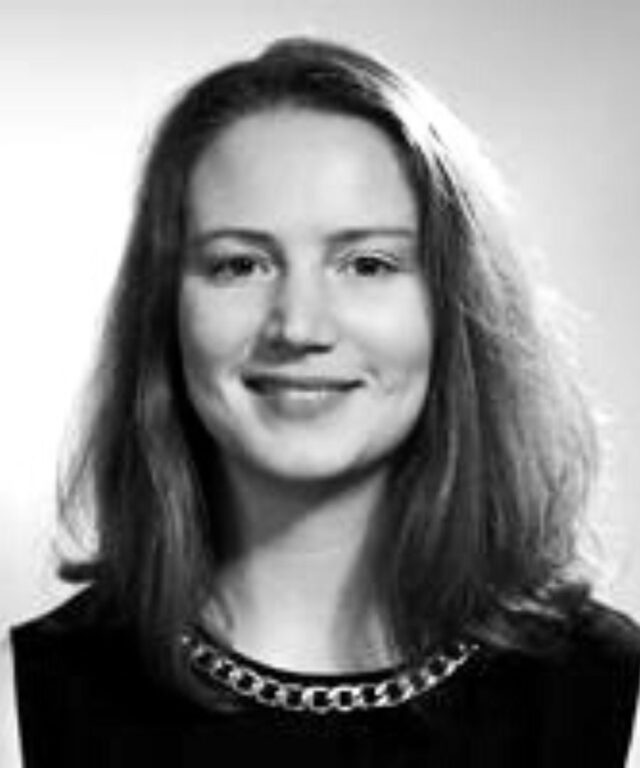
Dr Joanna Leidenhag is a lecturer in Theology and Liberal Arts at the University of Leeds, teaching broadly in the sphere of Christian theology, philosophy of religion and intellectual history.With qualifications in Systematic Theology, Theological Studies and Modern History and Theology, she is passionate about how philosophical concepts, scientific revolution and Christian theology are woven together to inform society and personal beliefs.
Through her PhD and subsequent books Minding Creation: Theological Panpsychism and the Doctrine of Creation and Creation and Ecology, Dr Leidenhag explored the concept of panpsychism and its relation to Christian orthodoxy, arguing that it is of benefit to the doctrine of creation. Panpsychism, broadly, is the understanding that mentality is ubiquitous in the natural world, and not limited to only humans and animals.
Dr Leidenhag is currently undergoing research exploring what people with neurodiversity, particularly autism, can teach the church about what it is to be human, a child of God and members of the Body of Christ.
The Whole and the Person: The Destiny of the Self in the Infinite Universe
20 April – Doru Costache
One of modernity’s forebears, Blaise Pascal, gave voice to a terror that still haunts us, regarding the human self condemned to pointlessness in the infinite universe. He cried out loud: “The eternal silence of these infinite spaces frightens me!” For centuries, indeed, the self appeared to be inexorably lost in the cosmos—to paraphrase Walker Percy—managing to gain a bit of self-esteem by abusing nature (i.e., the environment) in the name of erecting a civilisation. But this was not a real way out of the self’s predicament. Not even the joy of finding out more things about nature and the universe could be the desired solution. Closer to our time, fortunately, Pierre Teilhard de Chardin reminded us that Christianity is an excellent framework for reconciling the self and the cosmos, or the whole and personal consciousness. In this talk, I undertake to map the parameters of the issue, one that still determines the self to seek refuge in excesses of all sorts, as well as a possible solution, in Teilhard’s footsteps, for the terrors the self experiences at the sight of modern cosmology’s bewildering expanses.
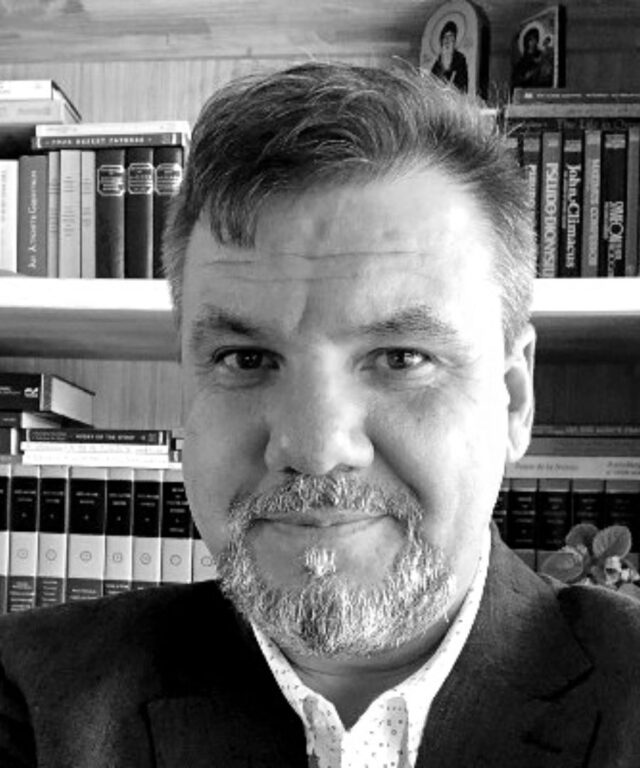
Associate Prof. Doru Costache is the ISCAST Research Director. He was trained at the Radu Vodă Seminary, Bucharest, Romania, and has undertaken doctoral studies in Orthodox theology at the University of Bucharest. His doctoral thesis was on the anthropic cosmological principle interpreted from the viewpoint of a patristic theologian, Saint Maximus the Confessor, and a neopatristic theologian, Father Dumitru Stăniloae. He has over twenty years of tertiary teaching experience and was the Durham International Senior Research Fellow at the Institute of Advanced Study, the University of Durham in 2018. He has published numerous articles and books.
“What Is It like to Be a Bat?” An Introduction to Zombies and Thought Experiments in Consciousness
27 April – Chris Mulherin
Following two in-depth and theological ISCAST-NZCIS Conversations, this week’s session is a little lighter. It is an introduction to thought experiments that philosophers have used to explore the nature and limits of consciousness. From a Christian viewpoint, humans are distinct from other animals and, presumably, from any present or future machines. So, Christians might hope for ways of understanding this distinction. As ChatGPT, the publicly available artificial language processor, takes the world by storm, Chris Mulherin (who is definitely not an expert in this field) will introduce us to “the hard problem of consciousness,” bat brains, zombies, Mary’s room, the Turing test, and other hypothetical scenarios designed to show that there are limits to machine “thinking.”
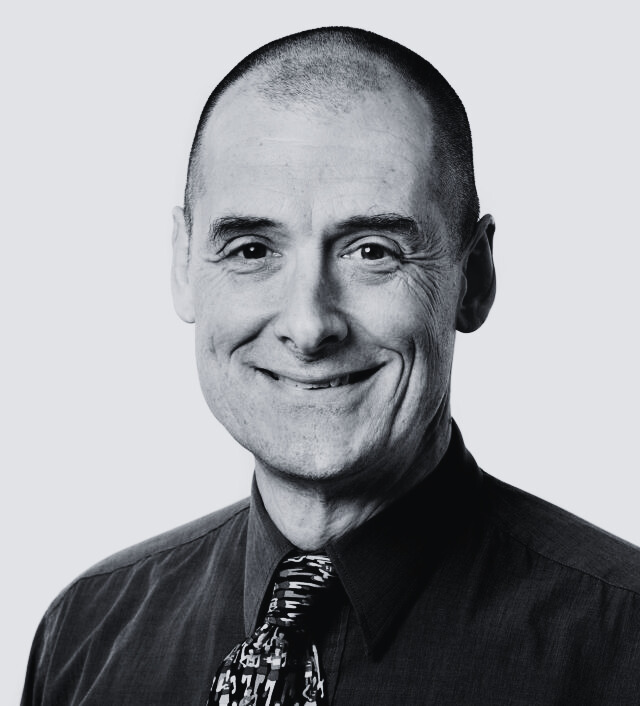
Chris Mulherin is the Executive Director of ISCAST and also teaches introductory philosophy at the University of Divinity. Apart from his own mind, which he claims to understand moderately well, he is not an expert in philosophy of mind. However, that might be a good thing, as he leads us in this discussion at a non-philosophical level. Chris is an ordained Anglican, once taught engineering, and lived for 13 years in Argentina with his family. His PhD relates scientific knowledge to other sorts of knowledge, including theology.
Can a computer be conscious?
4 May – Neil Dodgson
Artificial intelligence has developed to the point where it exhibits behaviours that we might attribute to something that is conscious. But we have not yet developed a computer that is self-aware and almost no computer scientist would ascribe consciousness to the artifacts that we currently have, no matter how clever they appear.
How, then, would we determine whether a computer is conscious? To answer this, it is instructive to think about how we do the same thing for human beings. Why do we ascribe consciousness to a baby, when it can do so little? When does it start having consciousness? How do we think about people in a persistent vegetative state? Do we think that animals are conscious in the same way as humans? If so, where do we draw the line between conscious animals (a cat?) and non-conscious animals (a cockroach?)?
These considerations lead us to questions about machine consciousness, which I will explore in my talk, referencing both research and some of the great masters of science fiction who have thought deeply about these matters.
Does a consciousness need a growth period in which to develop? Can we imagine a conscious mind that comes into existence with no development phase?
Does a consciousness need to be embedded in a community? We know what happens if you isolate a child from other humans while it is developing; would the same happen to a computer? What sort of community would a computer need? Whose values would it learn?
Does a consciousness need to be embodied to develop? Humans have fully embodied intelligence: we are mind and body in one package. Can we imagine a conscious mind floating in a tank? If you create a computer intelligence that has no agency to manipulate the world, do you create psychosis?
And finally, what would the theological implications be of a machine that was truly conscious?
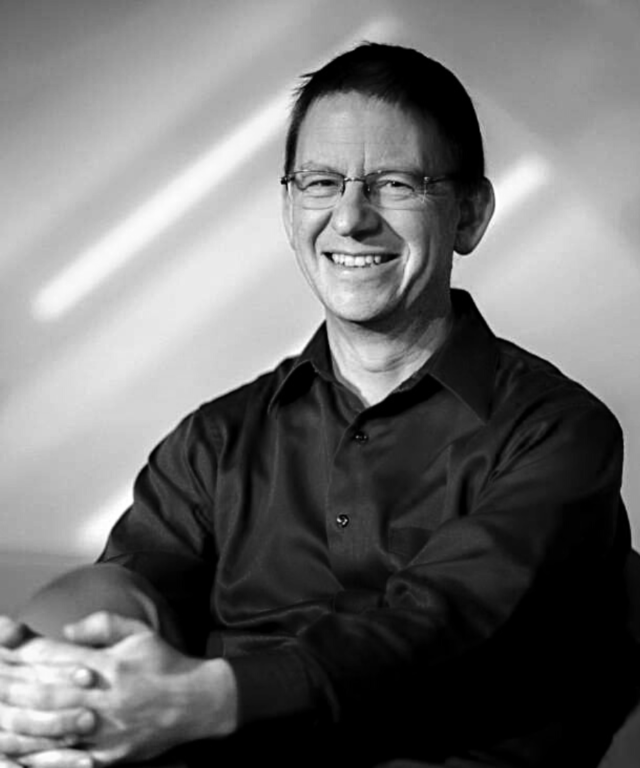
Neil Dodgson is Professor of Computer Graphics and, since 2019, Dean of the Faculty of Graduate Research at Victoria University of Wellington. He has oversight of the 1500 research students across all the University’s disciplines. He has an undergraduate degree in mathematics, physics, and computer science from Massey University, New Zealand. He spent 27 years in Cambridge, England, first as a PhD student, then as a member of academic staff, eventually becoming Deputy Head of the Department of Computer Science and Technology in 2010. He was a Fellow of Emmanuel College, Cambridge from 1995 to 2016.
Is Consciousness a Platypus?
11 May – Antonios Kaldas
One of the ways we understand what something “is” is by fitting it into a bigger framework of other things that “are,” and trace out its relationships with them. When Europeans first came across the platypus, many did not believe it really exists. It does. But it does not fit into any existing category of living creatures. It has mammalian characteristics, but lays eggs and has a beak. It has reptilian/avian characteristics, but it’s warm-blooded. Eventually a whole new category had to be invented just for it (and the echidnas): ‘monotremes.’ When people discuss what consciousness is, they try to fit it into current categories of “things that exist.” But perhaps consciousness is the ‘platypus’ of the cosmos? Maybe we need to think bigger. In this talk I survey the various metaphysical slots into which people have tried to fit consciousness and assess how well they fit. I also try out a new approach to consciousness on the unsuspecting audience and hope to refine it with your feedback.
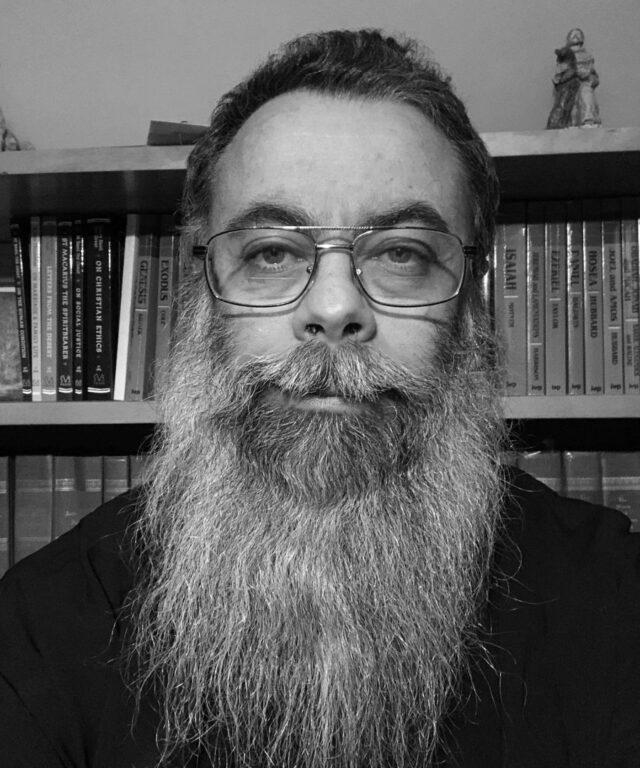
Rev. Dr Antonios Kaldas has served as parish priest of Archangel Michael and St Bishoy Coptic Orthodox Church in Mount Druitt, Sydney, Australia, since 1991. He was previously a medical doctor, and has been heavily involved in the spiritual education of children and youth. He is an active researcher in the philosophy of mind and cognitive science, lectures in Apologetics and Philosophy at St. Cyril‘s Coptic Orthodox Theological College in Sydney, and has recently authored Two Become One: An Orthodox Guide to Engagement and Marriage (2017), Ancient Faith Publishing. He is married with two children and a number of pets.
Three Types of Consciousness in Rudolf Steiner’s Spiritual Scientific Philosophy
18 May – Martin Samson
Rudolf Steiner presents consciousness as becoming aware of what one is experiencing. There is a rhythm between perception, processing these internally and committing that to memory, which in turn directs our engagement with the world. Sounds simple enough, but what of levels of consciousness where it is not so easy to be conscious of our experiences. The day-time consciousness is possibly the easiest to define. To that we will explore one layer beneath or dream/sleep consciousness. Then one layer ‘above’ in what we experience of spirit in meditation, contemplation and religious ritual. What quality in us guides and holds consciousness at every level?
Do the faculties that allow us to be aware/conscious in the everyday experiences give us and understanding to perceiving and remembering our dream and spiritual experiences? Given enough time on the evening we might be able to briefly explore how Steiner sees our layers of consciousness relating to the animal, plant and mineral consciousness too.
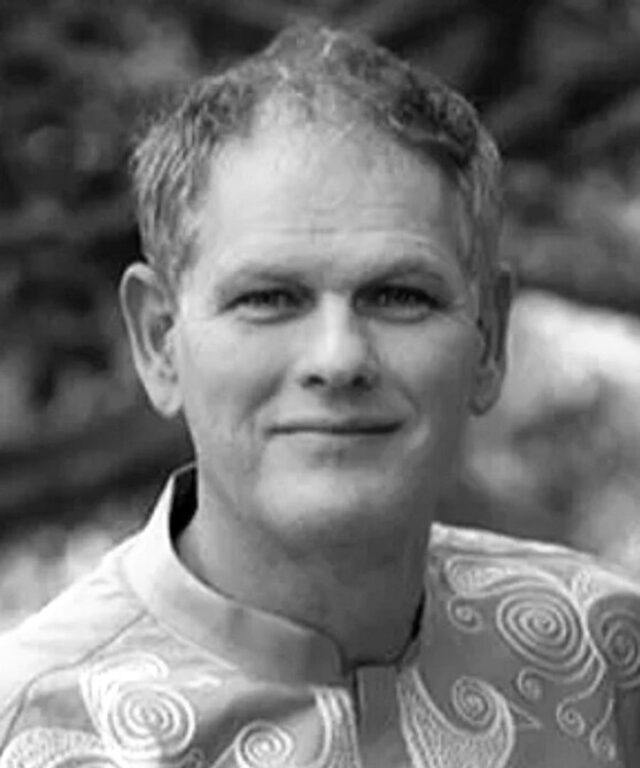
Martin Samson was born in Southern Africa and grew up through the melting pot of transition that led to the end of Apartheid. Many life experiences including working in the Apartheid driven Ghettos, living in a monastery, and volunteering in an organisation for socially and mentally disabled people formed his path towards metaphysics and spiritual understanding. His life has been a quest for knowing how the world works, how the spiritual and physical work in union with each other and providing opportunities for people to share in his knowledge and guidance.
Martin was a priest of The Christian Community for 25 years, and has worked in Australia since 1992. He received a Masters in Theological Studies and has spent many years studying cross-cultural religion, philosophy, mythology, and cosmology. He has lectured extensively on many subjects including a global spiritual approach to the festivals in the southern hemisphere. Martin travels around Australia and other countries around the world presenting on cross-traditional culture and philosophy. He has recently moved to Sydney and is enrolled in his PhD on: creating a language and grammar between the Christological ideas of Rudolf Steiner’s anthroposophy, traditional systematic Christological doctrine and excluded Gnostic traditions. He will also bridge the spiritual scientific methods of anthroposophy and main stream theological systems of knowledge.
What Is Wellbeing? Personality and Social Influences on Conceptualisations of Wellbeing
25 May – Peggy Kern
From a subjective perspective, numerous models and frameworks of wellbeing exist. Such models are important for determining how to measure wellbeing, what interventions support wellbeing, and what improvements in wellbeing can be expected from any given intervention. But personality, sociocultural factors, spirituality and religious perspectives, and personal experiences across the lifespan impact upon how wellbeing is defined and experienced. This talk will explore strategies for capturing idiographic experiences of and pathways towards wellbeing, identify different conceptions of wellbeing that arise from these methods, explore intersections with Biblical perspectives on wellbeing, and consider implications for everyday life.
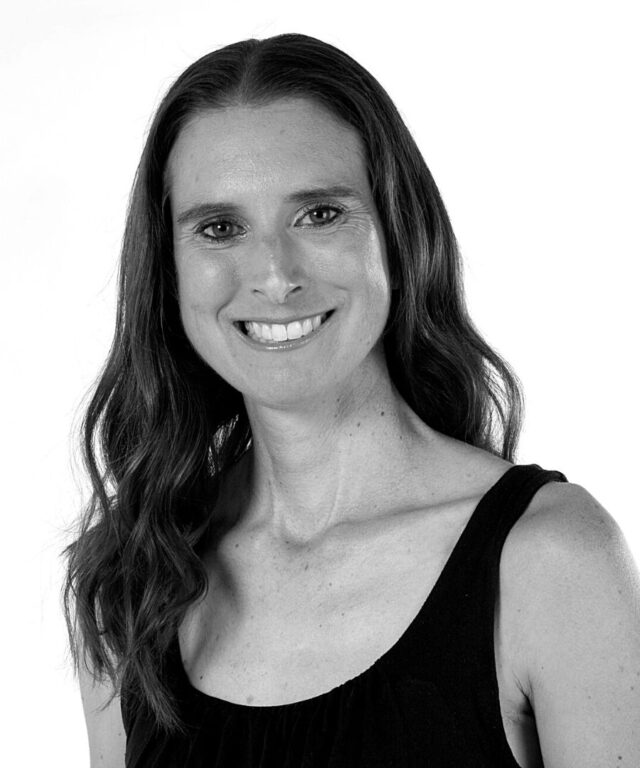
Associate Professor Peggy Kern is a researcher at The University of Melbourne. Her research examines who thrives in life and why, including understanding and measuring healthy functioning, identifying individual and social factors impacting life trajectories, and systems informed approaches to wellbeing.
The brain and consciousness
1 June – Grant Gillett
The neurodynamic mind is an embodied reality arising through our incarnate being. That mind is the seat of thinking and consciousness and it has distinguished humans from their animal brothers and sisters. Descartes’ dualism emerged to deal with 1st person experience (I think therefore I am) and free will/Existentialism (I am/I act). Thinking, action and perception seemed to transcend mechanism until the rise of AI. Thinking is conveyed to others through language and engages us with the world. Language also enables counterfactual and future-directed talk by the use of imagination and creativity so we can plan and execute a series of actions and anticipations of perception based in our embodied lives (where we play sport and create art). These abilities bring an infinite set of potential cognitions in their wake fuelled by our own creativity and interests which may be egocentric or inclusive and loving. Consciousness therefore is a consequence of ‘con-scio’ (knowing in company) and allows cognition (based on gnosis) which means, among other things ordering by a kind of directed knowing.
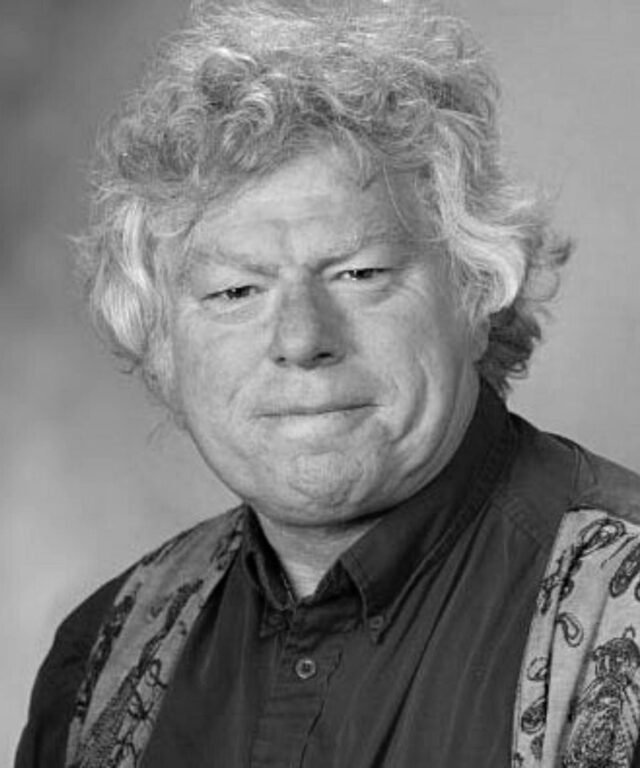
Grant Gillett is Professor of Biomedical Ethics in the Bioethics Centre at the University of Otago, whose research ranges quite widely in bioethics, philosophy, and neuroscience. Grant’s work in neuroethics arose from research in Philosophy of psychiatry focusing on the nature of mental disorder, psychopathy, and dissociative disorders. Grant examined these topics through Post-structuralist philosophy, an exploration of the patient’s voice, post-colonialism, and human subjectivity.
Moral Dimension of Consciousness: Ralph Cudworth (1617–1688) at the Dawn of Modern Philosophy of Mind
8 June – Samuel Kaldas
Modern philosophy tends to approach consciousness as a basic and morally-neutral feature of our mental lives: a phenomenon to be investigated with scientific objectivity, like cell division or gravity. But the first English philosopher to use the word “consciousness” in the modern sense, the Cambridge Platonist Ralph Cudworth (1617–1688), saw consciousness rather differently.
For Cudworth, consciousness was a decidedly moral property: to be conscious is to be virtuous, and all moral failures can ultimately be understood as failures to be properly conscious. This is because for Cudworth, consciousness is first and foremost a property of God: the divine mind, perfect in self-knowledge and self-awareness, is the archetype which all human consciousness is modelled after.
In this way, Cudworth provides a distinctively Christian and theistic philosophy of mind, where consciousness is not a morally-neutral property of mental life, but a mode of participation in the divine nature. While this “theological” view of consciousness would certainly be an awkward fit in most contemporary discussions of cognitive science or philosophy of mind, Cudworth’s pioneering work nonetheless provides a historically important, creative and compelling example of a Christian treatment of the mystery of consciousness.
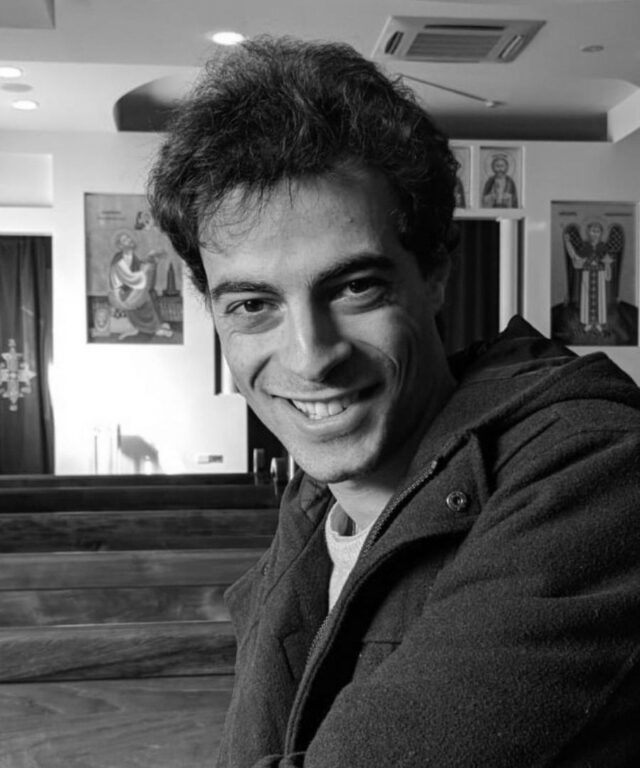
Dr Samuel Kaldas is Director of Research & Community Engagement at St Cyril’s. He has completed a BA majoring in philosophy and ancient history, with an Honours thesis on the moral psychology of early modern philosopher of religion Ralph Cudworth, who was also the subject of PhD. His research interests range over a wide set of questions about the interface between Orthodox theology and philosophy (both ancient and modern), including questions about religious knowledge, the existence of God, the problem of evil, philosophy of education and the philosophy of liturgy. He also has an enduring research interest in the culture and theology of “service” in 20th century Coptic thought, particularly in figures like St Habib Girgis, Fr Bishoy Kamel and Fr Yousef Asaad. He is the translator of Bishop Epiphanius, So Great a Salvation: Biblical Meditations of a Contemporary Desert Father (Cairo: St Macarius Press, 2019).


